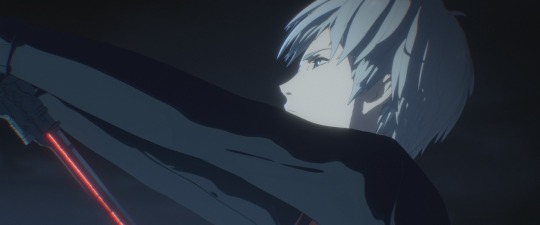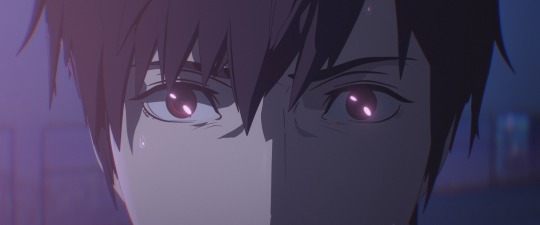#dazai is so complex that i feel like any of these choices are applicable
Explore tagged Tumblr posts
Text
what shatters you ?
⸻ exhaustion

you have tried to be atlas for far too long. your legs tremble and shoulders creak beneath the weight of the world you carry. every step forward is a battle , yet you soldier on . . . for what ? when will you learn that you are allowed to lower your heavy burdens ?
tagged by : @amourem ( peekaboo ) tagging : i'm late so feel free to if you haven't already !
#* ✦ 𝐈𝐕. ❮ isms ❯ ⸻ ❝#* ✦ 𝐕𝐈. ❮ muses ❯ ⸻ ❝ 「 osamu dazai 」#* ✦ 𝐗𝐈𝐈. ❮ dash games ❯ ⸻ ❝#dazai is so complex that i feel like any of these choices are applicable#like he's undoubtedly sorrowful and he's experienced betrayal#but i think exhaustion is definitely a part that's overlooked#the fact he was in a fishing container surrounded by chemical waste for most of his developmental years#and even now he probably doesn't get nearly enough sleep aside from the occasional forty winks#but him also trying to save the world from the invasion by going against the one opponent that he knows only he could face#and on top of that he doesn't even have time to address the issues that are personal to him#or rather he avoids them and pretends he isn't impacted#or perhaps he feels like he doesn't deserve to be distraught and regretful over them in fact he deserves to feel this way#much to think about
6 notes
·
View notes
Text
Review: Human Lost

Imagine a future where death has been conquered—any injury or disease can be healed through a government-run medical system, one that not only cares for its citizens’ physical well-being, but upon which the entirety of society is based. Yet, the vision of such a future isn’t fully secure, nor is it immune to favoritism, malfeasance, and a form of dangerous transformation, a mutation that one man will manipulate while another must control as he decides how to approach his own powers and the critical role he’ll play for the future of the world.
Human Lost, inspired (mostly superficially) by Osamu Dazai’s masterpiece, No Longer Human, is a film of staggering sci-fi vision. Set just a couple of decades into the future, Japan is now under the auspices of the S.H.E.L.L. healthcare system, to which all humans are connected, kept alive, and restored through remote nanotechnology when illness, injury, or death occurs. The best benefits of the system are enjoyed inside massive city walls; on the impoverished outside, Yozo Oba, a disaffected youth, joins a friend’s biker gang and the mysterious Masao as they make a high-risk effort to push their way through the boundary. However, their operation reveals that Oba has powers previously unknown and connected to the “civilization bringing curve,” a model that shows the current path of civilization. It is also divulged that Masao is an “applicant,” a human who wields tremendous power, which he plans to use to destroy both S.H.E.L.L. and society itself, which has forced its workers into 19-hours work days to pay for a pension system for an aging population, led by elders who want to live longest of all as they “stabilize” society. But most of all, Masao hates a system that forces people to stay alive—the exception being those that under duress transform into monstrous beings with destructive power and the unique ability to die.
There’s a strong philosophical narrative at work here that will be familiar to fans of sci-fi. The ground is laid early when one character remarks, “In order for humans to be human, we need death.” That philosophy and the opposite one are the motivating factors for most of the major characters in the film, but not for the protagonist, Oba. When he first appears on-screen, Oba isn’t even alive. His corpse, brought back to life through S.H.E.L.L. tech, is an apt analogy for his life to that point, one that feels meaningless, one where he’s trying to make a connection but to whom or what, Oba does not know. His own awakening during the wall assault conducted by his friend begins to drive him forward, though it’s the friendship he forms with Yoshiko, another “applicant” like Masao and himself, that gives him purpose.

The direction of the film is as big as the narrative. There are some wonderful “shots” in the movie, with director Fuminori Kizaki makes careful choices throughout the film: close-ups are frequent, top-down shots dominate scenes conveying the grandness of inhuman monsters, and shaky-camera animation brings us into the action when necessary. The first act also has a wonderful aesthetic, one that has a touch of cyberpunk in it, with a chase sequence that feels like Mad Max meets Minority Report. In fact, those movies feel like strong influences on the movie, the latter being no surprise with executive director Katsuyuki Motohiro’s filmography including the Minority Report-influenced, Psycho-Pass. However, the energy spent in art direction seems to dwindle away in the last 2/3 of the film, maybe by design as the animators have so much story to tell, and such a complicated one, that it’s almost as if they don’t want the art to get in the way. But it does, with 3D animation that isn’t advanced enough to animate a film of this magnitude.

While 3D animation has come a long way, it still struggles to attain the beauty and fluidity of more traditional work. Dark sequences marked by brilliant bits of light dominate Human Lost, but they can’t hide the failures in animation. The action sequences are flawed, but more troubling are the characters themselves. They look too much like they’ve walked out of a video game and not far enough from the uncanny valley effect from the first photorealistic animated film, Final Fantasy: The Spirits Within, developed some two decades prior. The faces, when not expressing any particular emotion, look really good, but as soon as they have to show anger or sadness, the facade is exposed. It becomes almost laughable when tears or sweat appear—they look like shooting stars streaking across the characters’ faces, not likely to incite the emotions the director wants us to feel. It’s a shame, too, because strong voice acting performances are wasted, both in the English dub (particularly from Macy Anne Johnson in playing Yoshiko, a challenging role as the moral center of the film, and Robert McCollum, who is making quite a career out of playing complex antagonists like Masao) and the original Japanese track—Mamoru Miyano is particularly expressive as Oba, but his voice seems at odds with the rubbery character animation; Kana Hanazawa fits better with Yoshiko, who is more even keel, but as her role grows more important and more emotional, the same problem occurs: the animation can’t properly convey her talent.

But ultimately, it’s not poor CGI that ruins Human Lost—it’s a screenplay that’s too grand in scope for 100 minutes. There are two tales simultaneously occurring—Oba is transforming from a (literally) brain-dead painter with a traumatic family history to a man whose heart (literally) can change the world, joining with a mystery sci-fi tale about S.H.E.L.L., the Qualification Ceremony, and Masao’s background, as well as a mental game of Who is right? The latter story is overly complicated, and despite giving the audience some wonderful questions to chew on, is told in a way that’s like jumping from the first two episodes of Evangelion to the clap-happy final two episodes (this is effectively what happens in a movie that runs the same length as four anime episodes and is obviously influenced by the property). Meanwhile, there’s no subtlety in the character development. We’re meant to see Masao as at once a frightening figure and one who may not be entirely wrong, but he comes across only as a crazed maniac since it’s difficult to comprehend why the system is so evil that it requires an entire “Human Instrumentality Project”-level reprogramming, as he intends. Oba, meanwhile, is wasted even further—nothing he does feels remotely human. He moves quickly from one world-altering decision to another, and while we understand why he might get to these places, the screenplay hasn’t earned his sudden changes nor his heroic growth. Lines like “I was always jealous of you” may work to help develop character in normal settings, but not when the speaker has only known the other character for two days.
The disconnected screenplay and inadequate animation veer what could be a great film off course, leading to a disappointing result. The good elements prevent Human Lost from being a truly bad film, but with it so chock-full of information that never quite connects, the end result might even worse: a film that’s forgettable. A movie lost.
Rating: C-
Human Lost’s limited theatrical release is this week, with showings today (subtitled) and Wednesday (dubbed) in the U.S. and November 6th and 9th in Canada. Visit the official website for theatrical locations and more information.
58 notes
·
View notes